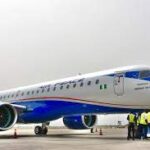Air transport is said to be the safest means of travelling so it involves high level of rating, categorization and certification. The delisting of Nigeria by the US Federal Aviation Administration has reputational implication on Nigeria.
The report is rife that Nigeria has been delisted from the United States Federal Aviation Administration Category 1 Safety Status (USFAA CAT 1) International Aviation Safety Assessment Programme (IASA).
Reports indicated that the FAA removed countries from the list that have not had any “indigenous” carrier operate services to the US or codeshare with an airline based in the US for over two years, along with countries where the FAA has not interacted with the respective CAA for extended periods of time.
The report further indicates that Nigeria first attained Category One Safety in 2010, after which the country maintained this status during subsequent FAA audits held in 2014 and 2017. It was also reported that Nigeria passed audits conducted by the International Civil Aviation Organization (ICAO) without significant safety concerns.
But industry stakeholders are wondering why the delisting, which took place in 2022 was kept secret until it was exposed two years later by a media report. The Nigeria Civil Aviation Authority (NCAA) confirmed that Nigeria was delisted because no Nigerian registered airline has operated to the US for about seven years and according to the new FAA regulation, a Category One status country that failed to operate to US after two years will be delisted from the status.
NCAA had emphasized, “It is important to clarify here that the delisting of Nigeria has absolutely nothing to do with any safety or security deficiency in our oversight system. Nigeria has undergone comprehensive ICAO Safety and Security Audits and recorded no Significant Safety Concern (SSC) or Significant Security Concern (SSeC) respectively.
“It is furthermore necessary to add that a Nigerian operator can still operate into the US, using an aircraft wet-leased from a country who has a current Category One status.”
Many industry observers who spoke to THISDAY insist that the delisting was not only due to the inability of Nigeria to schedule an airline that operates to the US, but there were other factors that culminated to the delisting in addition to the above factor.
Delisting without downgrading
Although there is an agreement that the major reason why Nigeria was delisted was because the country did not have a Nigeria registered aircraft operate commercial service to the US under an indigenous carrier.
But industry experts indicate other underlying factors. The Managing Director of Aero Contractors, Captain Ado Sanusi, who spoke to THISDAY after enquiries from his FAA contacts, said that Nigeria needs to improve on its aviation safety oversight because before FAA removed Nigeria from Category 1 status, it must have looked at Nigeria’s safety standards.
“Nigeria must meet significant safety standards on oversight regulation and infrastructure in order to return to the category 1 safety status. If Nigeria was downgraded to Category 2, it means that it can continue to operate to US, if it is already flying to US but it cannot extend its service, like extending its service from New York to Atlanta, if it is already flying to New York. US airline cannot code-share with it.
“But delisting completely means that no Nigerian airline can fly to US and no code-share with US airline and US airlines operating into Nigeria cannot extend their service, like extending flights from Lagos to Abuja and they cannot code-share ,” Sanusi said.
He explained that this has not only affected Nigerian operations but it has hit the country with reputational damage in the international aviation community because it will raise concerns about Nigeria’s safety status and may affect Nigerian airlines’ operations to other international destinations.
“This will affect passenger confidence. To go back to the Category 1, we have to start all over again because it has rubbished all the things we have achieved before. So, we need major reforms,” Sanusi added.
Reputational damage
It is the view of many in the industry that the delisting of Nigeria from USFAA Category 1 Safety Status have negative reputational impact, which include increase in aircraft insurance premium, high cost of aircraft leasing, and overall goodwill of the aviation industry in Nigeria.
As FAA Category 1 member, Nigeria is seen as a country that has high safety standard, which has high safety status, but now, the evaluation of Nigeria’s air safety will be blurred by the delisting.
Industry insider and the Director, West Africa Moov Airways AG, Lanre Bamgbose, told THISDAY that it amounts to disservice and ingratitude if anyone says delisting Nigeria from the USFAA Category 1 is not a loss to Nigeria, especially “when you situate it within the context of the investments that went into the FAA audit in 2009/2010.”
“I recall the multimillion-dollar investment that went into it. I know for a fact that Arik Air, a private airline invested millions of dollars to support the NCAA, Federal Airports Authority of Nigeria (FAAN) and the Aviation Ministry in pursuit for USFAA Category 1 certification. Let’s face it, the non-activity on the American route, is the percussor for that loss and it was caused by AMCON forced take-over of Arik on 9 February 2017, and the consequential discontinuation of the Arik flights to New York among others. It is not far-fetched that the take-over misadventure is an opportunity cost that transitioned to monumental loss for Nigeria.
“Look at our commercial passenger airline spectrum today, there is drastic reduction of capacity which implicitly reduced choices to the travelling public. In addition, there is loss of jobs arising from discontinuation of services on certain routes served by Arik-(courtesy of AMCON takeover of the airline), diminished capacity of Aero and the grounding/exit of Dana including the epileptic operations of a few others. The consequential overall impact on the economy directly/indirectly and on affected several routes /market segments is huge. Also see the number of aircraft, some of them New Generation sitting down at the airports due to different reasons including inaccessibility to forex, incompetence or deliberate schemes of sabotage and destruction. Aviation is in dire straights!” he said.
Bamgbose commended the Minister of Aviation and Aeronautical Development, Festus Keyamo, for his enthusiastic pursuit of MoUs with lessors, aircraft manufacturers and others, noting that the fact remains that there are too many unresolved issues that his “personal guarantees” cannot fix, those issues, Bamgbose said, are fundamental to business, which include ethics and best practices, adding that some of them relate to the treatment of our local and foreign investors.
“For as long as they remain unattended and unresolved, we may end up with flights to no-where ; all motion without movement,” he said.
Amelioration
It is good to note that Nigeria was delisted in 2022, one year before the Tinubu administration came to be. In the past administration also, Nigeria barely passed ICAO audit, but since then, industry observers said, Keyamo as the Minister, has been on his toes to improve the industry.
In the statement issued by NCAA to explain why FAA delisted Nigeria, which was signed by the Director General, Captain Chris Najomo, the authority stated that efforts are being made to sustain and improve on the safety status of air transport in the country.
“Furthermore, it is in full realisation of this situation that has since prompted the Honourable Minister of Aviation and Aerospace Development, Festus Keyamo, to embark on an aggressive international campaign to empower our local operators to access the dry-lease market around the world which culminated in the visit to Airbus in France earlier this year and the MoU signed with Boeing in Seattle, Washington just last week. The Honourable Minister has also done a lot of work to make Nigeria comply fully with the Cape Town Convention which will bring back the confidence of international lessors in the Nigerian aviation market. We are confident that with these steps of the Honourable Minister, it is only a matter of time that Nigeria, not only regains, but can sustain its US Category One status,” NCAA also said.
Going back to the status
According to Simple Flying, IASA Program is a two-tier system consisting of classifications known as Category One and Category Two. The former of these is for countries whose commercial aviation practices are considered to be in line with ICAO standards.
Countries have to meet standards for various different aspects in order to achieve a Category One rating. These include the country’s operating regulations, training, legislation, safety resolutions, and technical capabilities.
It is important to note FAA looks at a country’s commercial aviation operations as a whole, rather than those of individual carriers in deciding its classification. In other words, FAA does not evaluate the safety compliance of any particular airline, nor does it address aviation security, airports, or air traffic management alone. It is all inclusive, which involves all aspects of air operation of that country.

Requirements that must be met
Industry experts agree that Nigeria would not regain the FAA Category 1 Safety status by just flying to the US when a designated Nigerian carrier is allowed by US authorities to fly to the country, but Nigeria will have to be audited again with the attendant huge cost and time wasting process.
Since the country lost its category one safety status, none of the airlines based in the country can currently operate direct flights to the US. However, should any of the airlines wish to restart services to the US in the future, the first thing that has to be done is to get the FAA to perform safety audits and collaborate with the NCAA to have Nigeria reinstated within the FAA’s Category One safety list.
To have their status reinstated, the country will have to pass the FAA’s International Aviation Safety Assessment (IASA) done in the country, which includes eight key elements that need to be satisfied: primary aviation legislation, specific operating regulation, state aviation system and safety oversight functions, technical guidance, certification obligation, surveillance obligation and resolution of safety issues.
There is a general agreement that Nigeria must take seriously the improvement of safety in air operations and also must as quickly as possible help airlines to meet the US requirement that will enable Nigerian carrier to operate to the United States.







